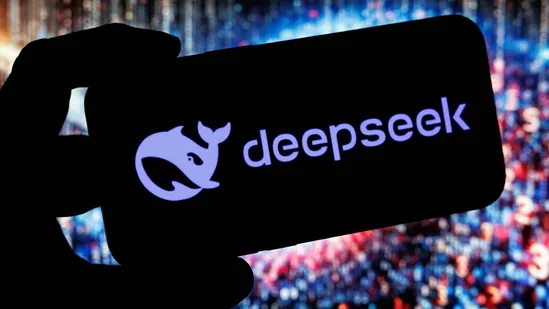In what can only be described as a shocking turn of events, the groundbreaking Chinese AI startup, DeepSeek, has come under a massive cyber assault just hours after unveiling a technology that has sent shockwaves through Silicon Valley and Wall Street alike. The company, which introduced an AI model boasting unprecedented efficiency, now faces what many are calling a suspiciously timed cyberattack.
DeepSeek's breakthrough was nothing short of revolutionary. The startup claimed to have developed an AI model capable of rivaling the performance of giants like OpenAI's ChatGPT but at a fraction of the cost, using less advanced hardware than what's typically required by U.S. tech giants. This announcement not only led to a significant dip in stocks of major tech companies like Nvidia but also sparked a global conversation about the future of AI development and its economic implications.
However, the celebration was short-lived. Posts on X reported that DeepSeek was experiencing "large-scale malicious attacks," forcing the company to temporarily halt new user registrations to manage the onslaught. This has raised eyebrows across the tech community, with many questioning whether this could be an attempt to stifle a competitor that has potentially disrupted the lucrative AI market dominated by American companies.
The timing of these attacks is particularly suspicious. After DeepSeek's app soared to the top of the App Store charts in major markets, including the U.S., and following comments from influential figures like Marc Andreessen calling it "AI's Sputnik moment," the cyberattacks commenced almost immediately. This has led to speculation that established tech giants or those with vested interests in maintaining the current high-cost, high-investment AI development model might be behind the scenes, pulling the digital strings.

Conservatives have long criticized the monopolistic tendencies of big tech, often pointing to their vast influence over both markets and public discourse. Here, we see another chapter where innovation from an unexpected source threatens the status quo, only to be met with what appears to be a tactical response to undermine it. The narrative of free and open competition in the tech sector is once again put into question.
Moreover, the attack on DeepSeek isn't just about one company; it's symbolic of a broader battle in the tech landscape where efficiency and cost-effectiveness could democratize access to advanced AI, potentially benefiting smaller enterprises and developers worldwide. The implications are vast, touching on issues of national security, economic competition, and the global balance of tech power.
As reported by various sources, DeepSeek's approach to AI development, which involves generating its own training data and using less resource-intensive methods, has not only challenged the need for vast capital expenditure but also pushed forward the debate on AI ethics and data sovereignty. The cyberattack, therefore, might be seen as an attempt to prevent such democratizing technology from gaining further traction.
The conservative perspective here is clear: if innovation, especially from competitors outside the traditional Western tech hubs, is to be met with such aggressive countermeasures, it raises serious concerns about fair play in the global tech arena. The call for a thorough investigation into these cyberattacks is growing louder, with demands for transparency and accountability in what appears to be an effort to protect established market positions at the expense of technological advancement.
As this story unfolds, the CGN Network will continue to monitor developments, advocating for a tech landscape where innovation thrives free from undue interference. This incident with DeepSeek is a stark reminder of the lengths to which some might go to maintain their dominance in an increasingly competitive world.
